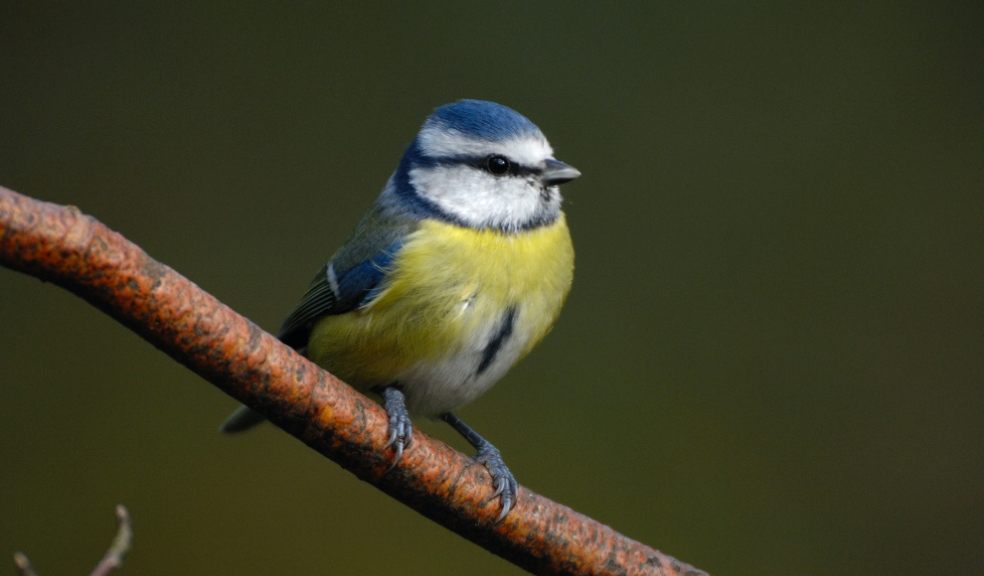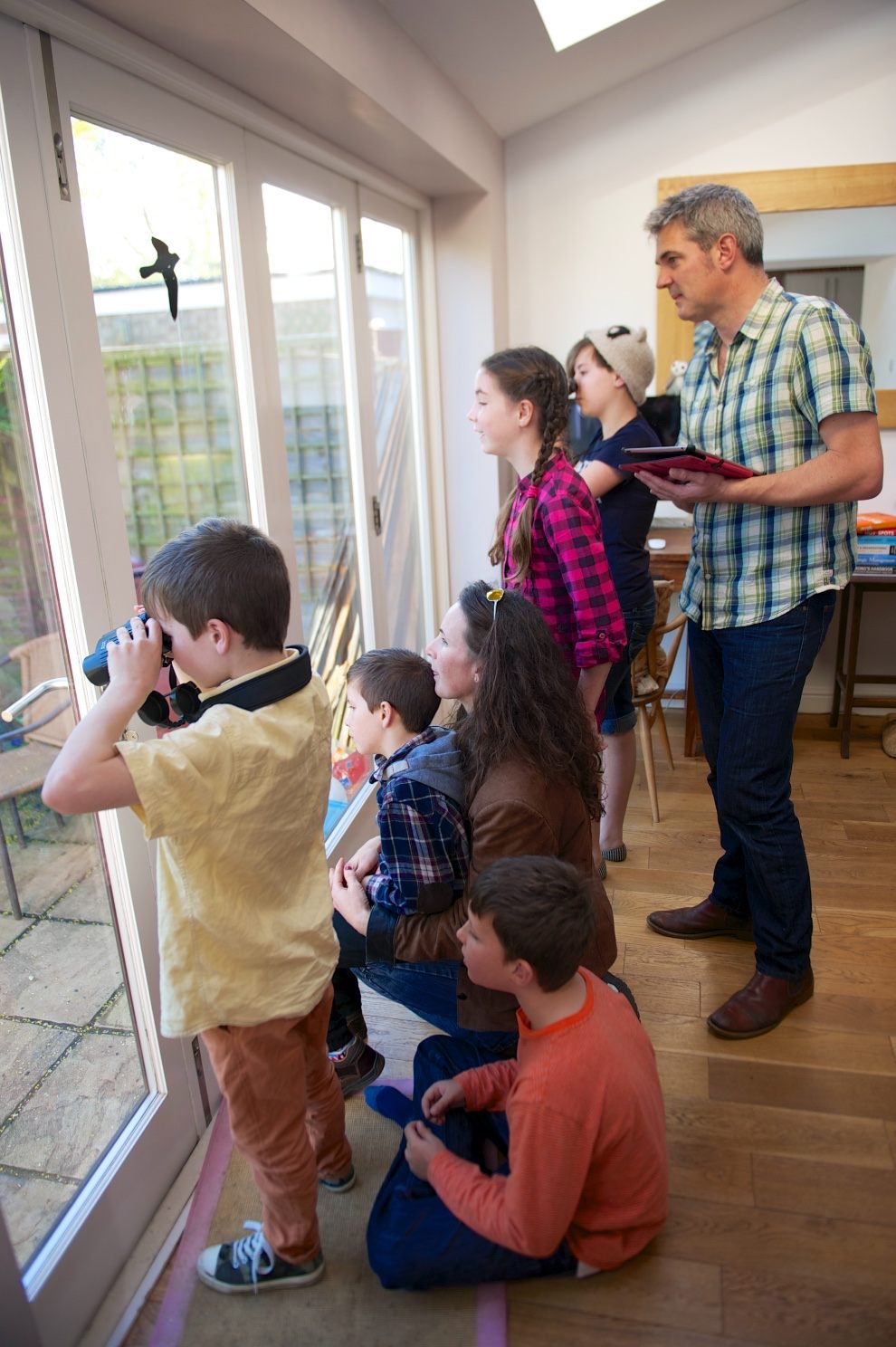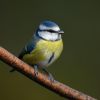
What will you see in Devon during the RSPB’s Big Garden Birdwatch?
The UK’s biggest citizen science project has been recording the winners and losers in the garden bird world for over four decades with the help of half a million people, and now the RSPB is counting on Devon residents to join in too.
Set to enter it’s 42nd year this month, the largest wildlife survey in the world, the Big Garden Birdwatch, runs from the 29th to 31st of January and combines over 40 years of records to monitor vital bird trends. People across Devon are set to get involved, spending just an hour of their time recording the birds found in their gardens, balconies or nearby green spaces, and submitting their results to the wildlife charity.
This year, we’ve seen how important the natural world is to our mental health and wellbeing, with a surge of interest in the nature on our doorsteps seeing many people come to rely on garden birds to bring joy and comfort in these unsettling times. That’s why the RSPB is hoping to see more people than ever take part, after over 14,500 Devonresidents took part last year.
Both across the country and here in Devon, house sparrows topped the rankings in the RSPB’s Big Garden Birdwatch results last year, despite wider national decline. Meanwhile, blue tits and starlings joined house sparrows to form the top three most sighted birds in the county,
A common garden bird thanks to the provision of winter food and nest boxes, blue tits are on the rise across the country, with an 8% increase in the population since 1979. Other birds featuring in the Devon “top ten” were goldfinches, great tits and long tailed tits.
Seeing a positive change across the county, long tailed tits were found in over 15% more Devon gardens in 2020 compared to previous years. These charming birds, with distinctive pink grey and white feathers and long tail, are usually found in large flocks of up to 20 birds and often make use of garden feeders throughout the winter – so be sure to look out for them this year.
Allowing the RSPB to monitor similar bird trends across the country, the data collected during the Big Garden Birdwatch will create a ‘snapshot’ of bird numbers across the UK and how they have fared since the project began over 40 years ago. To help with their research, the charity is asking for all those taking part to ensure they share what they’ve seen during the hour by submitting their results at rspb.org.uk/birdwatch.
A great opportunity to connect with nature and help with the RSPB’s work no matter how much you know about garden birds already, the RSPB will provide a FREE Big Garden Birdwatch guide, which includes a bird identification chart, top tips for your birdwatch, RSPB shop voucher, plus advice on how to help you attract wildlife to your garden, for those who text BIRD to 70030 or register at www.rspb.org.uk/birdwatch .
Beccy Speight, the RSPB’s Chief Executive, said: “We know that for many people, garden birds provide an important connection to the wider world and bring enormous joy. Lockdown brought few benefits, but the last year has either started or reignited a love of nature for many people. There has been a broad and much needed realisation that nature is an important and necessary part of our lives especially for our mental health and wellbeing. But nature needs us too.
“By taking part in the Birdwatch, you are helping to build an annual snapshot of how our birdlife is doing across the UK. It is only by us understanding how our wildlife is faring that we can protect it. We know that nature is in crisis but together, we can take action to solve the problems facing nature.”
What’s more, the RSPB are on hand to provide plenty of other wildlife inspired activities to take part in from home with their free Wild Challenge. By completing fun and engaging activities ranging from bug hotels and bird boxes, to making a compost heap and drawing wildlife, participants can then log their achievements on to the RSPB Wild Challenge website and collect bronze, silver and gold awards. To find out more, head to rspb.org.uk/wildchallenge.
Meanwhile, teachers can make use of the charity’s range of resources for RSPB’s parallel event, the Big Schools Birdwatch. Taking place during the first half of spring term (6 January – 21 February 2021), the event is this year celebrating its 20th anniversary of connecting children with nature in their school grounds. For a fantastic range of curriculum-based resources and to take part from your school, visit rspb.org.uk/schoolswatch,

Photo: Rahul Thanki rspb-images.com
During winter, birds are more likely to come into our gardens to seek sanctuary and food in order to survive. With the Big Garden Birdwatch around the corner, now is one of the best times of the year to attract your local birds with the help of feeders.
Providing food like fat balls and crushed peanuts can help birds to build up vital fat reserves and boost energy, while meal worms are great for insect eaters such as robins and starlings. Seed mixes also provide for many birds with their vast array of calorie-rich contents, or you could pick out a few favourites such as sunflower and nyjer seeds which contain beneficial oils and proteins.
Feeding birds doesn’t have to break the bank either, as kitchen scraps will also be readily enjoyed by our feathered friends. Mild grated cheese, soft fruits, cooked rice and pasta, porridge oats and unsalted bacon are all suitable for birds to enjoy for example.
At this time of year, a supply of water is also essential, and if the weather turns cold, birds can become more dependent on water provided in gardens. Making sure your water source remains clean and un-frozen is important in allowing birds to bathe and preen themselves too.
To help improve birds’ chances of survival through the colder months, the RSPB has plenty more top tips on feeding garden birds which can be found at www.rspb.org.uk/birdwatch

















